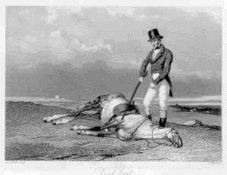copake_ham
Member
In Canada....
Sometimes the appeal turns on a narrow but critical issue. For example, where the subject of the appeal is the admissibility of a statement, and where that statement is both a confession, and the only evidence that could reasonably result in a conviction.
If the statement is thrown out, and the remaining evidence could not support a conviction beyond a reasonable doubt, the Appeal Court may substitute an acquittal.
It is a similar situation if the Appeal Court finds that the trial court was wrong in law about a fundamental component of the test for what constitutes criminal conduct. If the evidence at trial would not support a finding of criminal conduct, the Appeal Court will substitute an acquittal. An example of this might be something like someone who is charged with theft because they switched price tags on an item in a store, and then only paid the lower, incorrect price. That conduct would support a conviction for fraud, but not for theft, so if the charge is wrong, an acquittal must follow.
Both of these sorts of situations are relatively rare - more cases get sent back for retrial.
In case it isn't clear, if the Crown doesn't get it right in the first place, and the evidence at trial that remains after the Appellate Court finishes their work isn't enough to support a conviction, the Crown doesn't get a second crack at it.
As to the onus on Appeal, it is up to the appellant to satisfy the Appellate Court that the decision which is the subject of the Appeal was in error, and that the error was such that it did or could have affected the result. Despite that, it is still true that the test as to whether it was an error, and whether it matters, is one that must be considered in light of the principle that an accused is innocent until proven guilty.
To say it another way, the Appellate Court looks at the decisions made in the Court below, and determines whether they were consistent with the law, including whether they properly reflect the principal that an accused is innocent until proven guilty.
Appellate Courts show a lot of deference to trial courts' findings respecting facts and the evidence, but only if the evidence was fairly led and properly received.
Matt
Matt,
You have done a much better job of describing the appeals process than I did. Suffice to say, the systems are near-identical in both the US and Canada.
And you did accurately describe the very narrow grounds upon which an Appellate court here could also not only overturn the conviction and remand for a new trial but in fact rule the evidence was insufficient on its face and declare the defendant not guilty. And then, as you note, the prosecutors would have no second crack at it.







